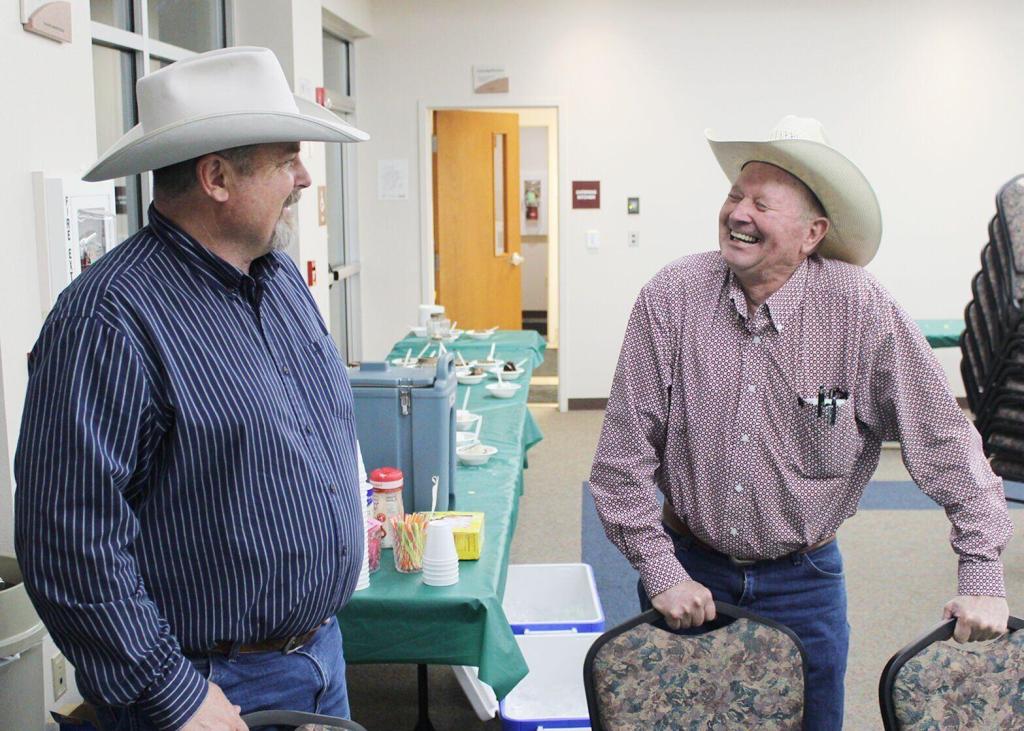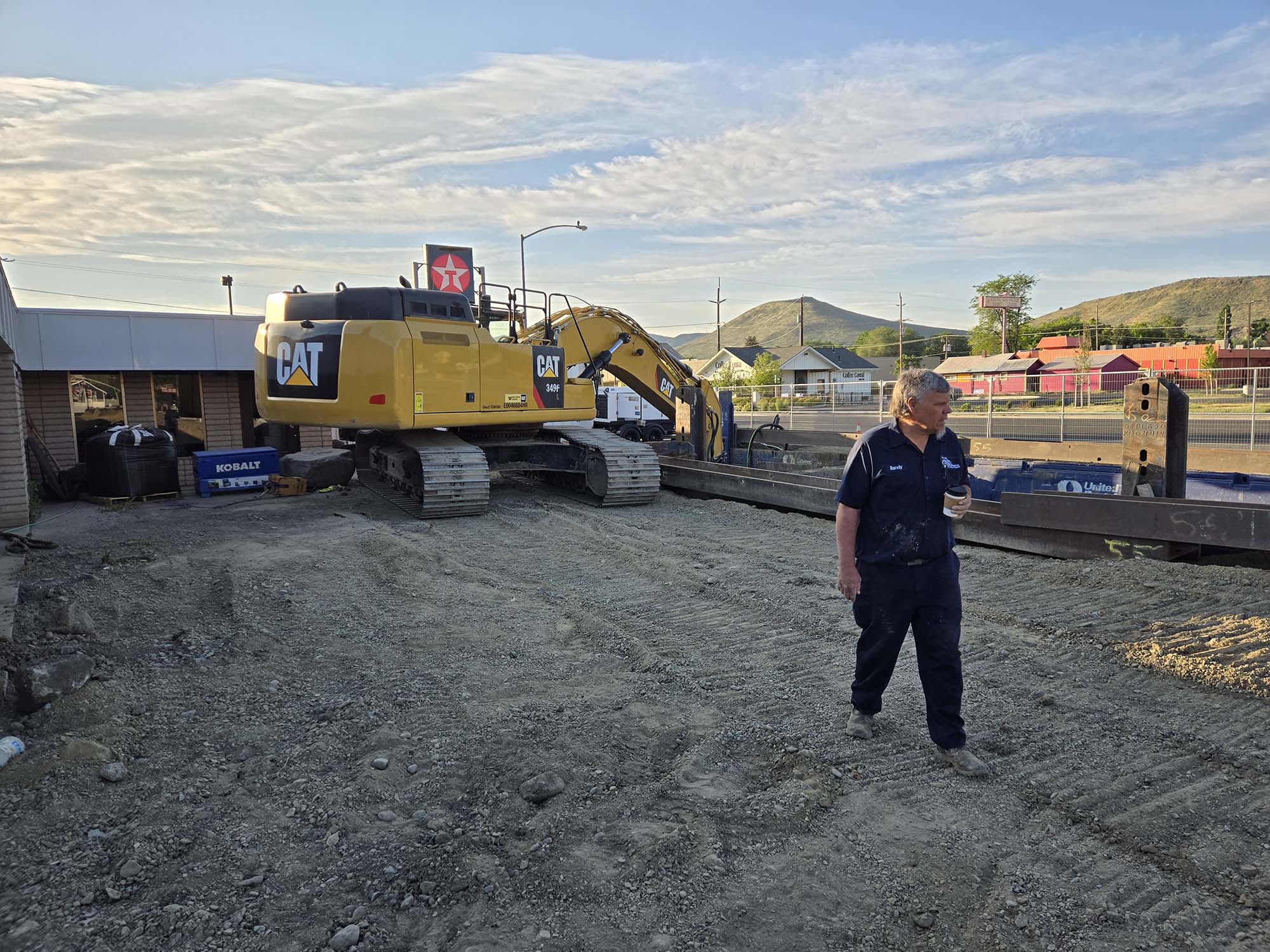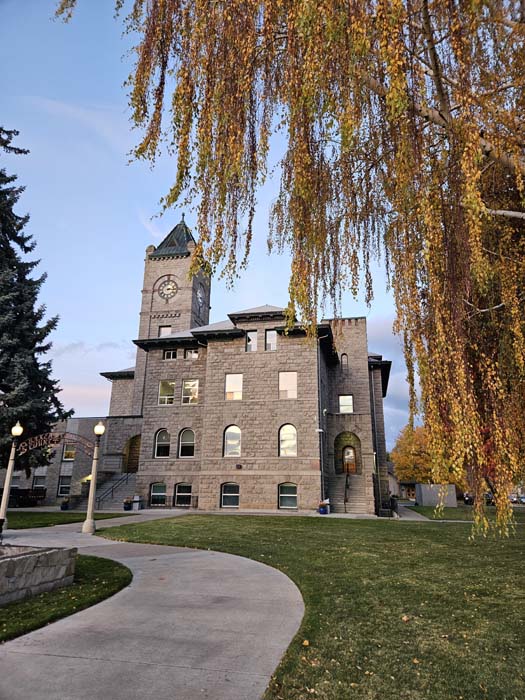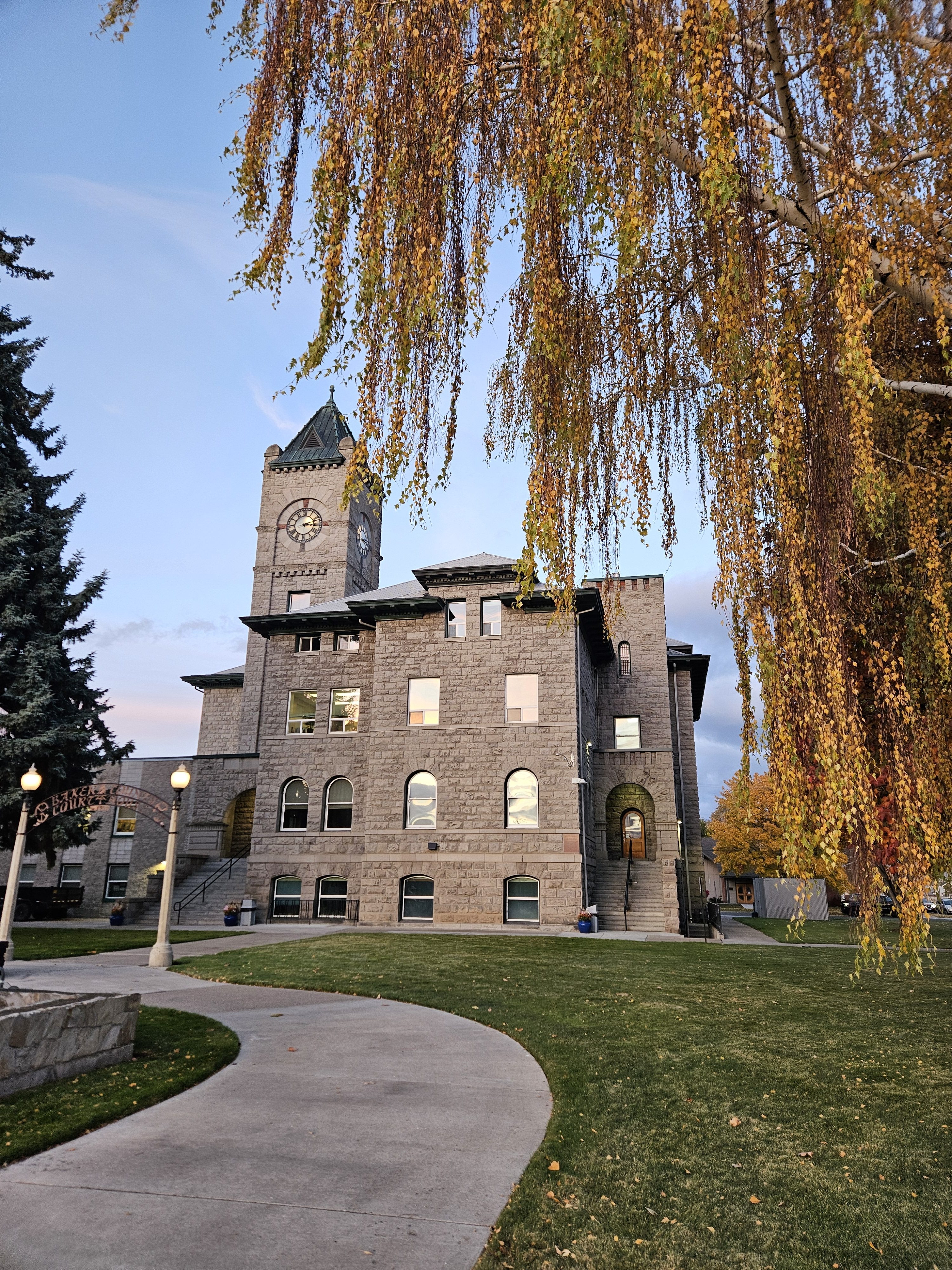Cattle association backs expansion of smaller beef processors
Published 7:53 am Friday, April 15, 2022

- Todd Nash, left, president of the Oregon Cattlemen’s Association, talks with Veril Nelson, a Sutherlin area rancher, during the Douglas County Livestock Association’s Spring Conference on Thursday, April 7, 2022, in Winston.
WINSTON — Todd Nash, president of the Oregon Cattlemen’s Association, is hoping to see the expansion of some small and mid-sized processing and packing facilities in Oregon.
To help with the expense of upgrading those facilities or building a new one to increase processing capacities for Oregon-raised livestock, the state Legislature allocated $2 million to the Oregon Meat Processing Infrastructure and Capacity Building Grant Program during the short session in February. The purpose of the grant program, according to the Oregon Department of Agriculture, is to help fund “equipment, physical improvements, technical assistance, processing hardware/software, on-site waste handling and education/training.”
“If the cattle are raised here, fed here and then processed here, it would keep a substantial amount of money here to help our economy,” said Nash, who was a guest at the Douglas County Livestock Association’s Spring Conference on April 7. “There’s a million head of cattle here in Oregon and most of them have been shipped out, making money for the big packers and their shareholders. The small facilities in Oregon currently aren’t able to handle that many. The current process hasn’t been working out well for Oregon.”
Nash, a rancher in Wallowa County in Northeastern Oregon, said $10 million was requested from the Legislature, which reduced the appropriation. Applications for funding up to $500,000 were accepted in February and March. Grants to help fund equipment will be awarded in May, and projects must be completed by June 30, 2023.
There are four major meat packers in the U.S. — Cargill, JBS, National Beef and Tyson. Nash said they control about 85% of beef processing.
“Here in the Pacific Northwest for live cattle, there is no competitive bid, no open market,” Nash said. “You deliver your cattle and they pay you what they think they’re worth.”
Nash explained that large livestock producers with thousands of animals broker deals with the packers. Because of the volume, those deals aren’t cost-effective for smaller producers, but that’s what they’re faced with due to a lack of competitive bids.
“If I did want to negotiate a price, it would only be if I could promise to deliver 1,000 animals in one day,” Nash said. “The average producer in Oregon owns 35 to 40 mother cows so they have no leverage in the market when selling their beef.
“We need those large facilities to consume large numbers of cattle in order to feed our large population,” he added. “That works well for food security needs, but small and mid-size facilities also provide us with food security. It’s a good investment for us to keep them going. All we can do is encourage that.”
Nash said the four big packers have been able to buy cattle cheaply in recent years after the price for cattle dropped from a high in 2014 and 2015. He explained that retail beef prices didn’t drop and the packers “have made massive profits going back to 2015.”
“It’s not a healthy situation,” Nash said. “We have to have a competitive market. We need to invest and encourage the build-out of small and medium-size processors so there’ll be competition. We need to let them flourish.”
Nash said the mid-size facilities fit Oregon better because they allow beef products to be tracked rather than becoming lost in the process of the big packers.
“It’s important to the consumer to know where the product was raised and how it was raised,” Nash said. “That’s where we can separate ourselves here in Oregon and capture a few more dollars in the cattle and beef process.
“The grants are there to entice people, to encourage people to pursue education in this area,” he added. “Hopefully, entrepreneurs are going to figure it out and improve our facilities.”
USDA has also offered to help small and medium processors expand.
“If the cattle are raised here, fed here and then processed here, it would keep a substantial amount of money here to help our economy.”
— Todd Nash, president, Oregon Cattlemen’s Association





